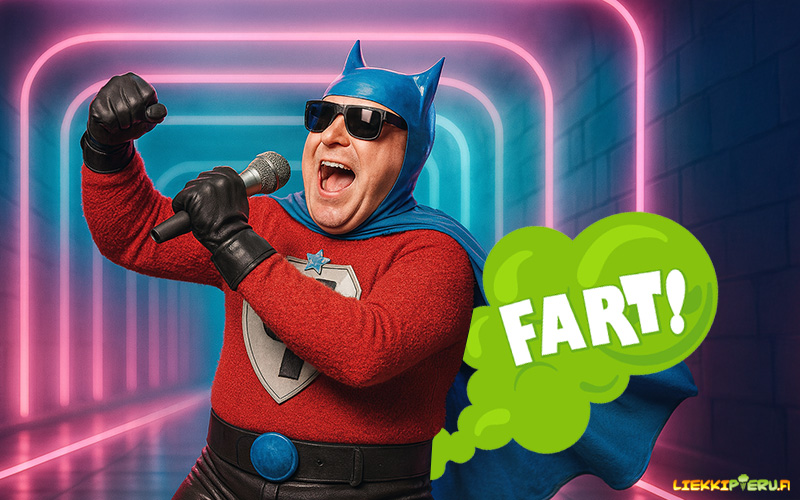
Does a warm fart smell worse than a cold fart?
Fart, even the word alone makes some people laugh and others wrinkle their noses — and for good reason. It´s one of the most universal sound effects in human existence, influencing both humor and science alike. But today we´re tackling a question that´s uncomfortably familiar yet rarely taken seriously: does a warm fart really smell worse than a cold one?
We’re diving into this gassy dilemma with a twinkle in the eye — but without sacrificing science. Along the way, we’ll explore digestive secrets, personal experiences, ventilation issues, and why that one fart in a winter coat seems to linger forever. This article doesn’t shy away from gas, it lets it out freely into the open.
Fart fundamentals — what exactly is a fart?
Before we dive into temperature effects, let’s briefly remind ourselves what a fart really is.
- Swallowed air – While eating and drinking, we swallow air that travels to the stomach and then to the intestines. This air often comes from carbonated drinks or hurried meals and tends to escape out the back rather swiftly.
- Bacterial fermentation in the gut – Gut bacteria break down leftover fibers and sugars in food, producing gases like hydrogen, methane, carbon dioxide, and hydrogen sulfide — the latter being responsible for that signature rotten egg scent. Sulfur-rich gases are why switching to a plant-based diet can lead to especially fragrant emissions at first.
The quality and intensity of a fart’s smell depends not only on diet, but also on gut microbiota, health status, and yes, temperature.
Warm fart vs. cold fart — field reports
If you’ve ever passed gas under a blanket, you know the sensation: a warm puff of air that floats up and circles right back into your nostrils like a spiteful ghost. In contrast, in cold air, a fart seems to vanish much more quickly — or at least doesn´t linger quite as long.
According to numerous “field reports,” warm farts feel like they smell worse. Many people experience the odor carried by warm air as more intense and overwhelming.
The chemistry of odor — why do some farts smell worse?
- Hydrogen sulfide (H₂S) – A highly pungent scent of rotten eggs. Even in small amounts, it can turn a fart into an unforgettable room-clearing event.
- Methanethiol and dimethyl sulfide – Sulfur compounds responsible for a sharp, unpleasant odor. These are especially produced from red meat and certain vegetables like onions and garlic.
- Ammonia – Slightly sour and biting. This emerges particularly when protein digestion is very active in the intestines.
These compounds are volatile, meaning they spread into the air depending on temperature and airflow. Smell isn’t just smell — it’s chemistry in action, governed by natural laws.
Temperature affects volatility
This is where physics steps in: chemical compounds evaporate more quickly in warm air than in cold. That means a warm fart releases odor molecules into the surrounding air faster and more efficiently than a cold one. Additionally, molecules move more actively in warm air, allowing the smell to rise and reach your nose more rapidly.
It’s like the atmosphere is offering an express lane for stench.
The physiological angle — how does the body produce warm or cold farts?
Most farts are body temperature, as they originate from your internal 37°C environment. A “cold” fart occurs mainly when someone is outside in chilly weather or sitting on a cold surface, cooling the exit zone. This might make the fart feel cool, but the gas itself isn’t much different in temperature.
Coldness can fool your senses, but the actual odor compounds stay the same — only their behavior in the air changes.
The "Dutch oven" effect — why do covered farts smell worse?
Many are familiar with the so-called Dutch Oven phenomenon — a fart under the covers. When gas gets trapped under a blanket, it doesn’t dilute into the surrounding air. Thanks to the warmth, the smell remains potent and flows straight to your nostrils.
In a confined space, the odors can’t escape, and they seem to lie in wait, ready to strike.
Cold weather and outdoor farts
If you’ve ever let one rip during a deep freeze, you know — the smell often dissipates almost immediately. This isn’t because cold farts are less smelly, but because cold air acts as a natural deodorizer. In cold conditions, air density is higher, which can slow the movement of odor molecules. Outdoors, smells also quickly dilute in the vast volume of air.
Nature is the best air freshener, at least when the temperature nears zero.
Outside, a fart meets the same fate as morning mist — it vanishes unnoticed. Wind, air pressure, and wide open space make sure the odor doesn’t get a chance to torment passersby. This natural ventilation system works silently, efficiently, and automatically. A forest trail, park bench, or empty parking lot can be surprisingly merciful stages for small gas releases that, indoors, would bring on blushing and teary eyes.
Warm summer weather and outdoor farts
If you’ve ever let one go on a hot July day, you know — the smell doesn’t vanish as graciously as in winter. It’s not that the summer fart is inherently stronger, but warm air keeps odor molecules suspended in the air longer. Hot, still weather acts like a hall of mirrors for stink — everything lingers, amplified.
Summer nature doesn’t always act as an air freshener — sometimes, it feels more like a greenhouse for gas.
On windless days, a fart can hang in the air like a bad joke in a BBQ line. Heated pavement, humid air, and blazing sunshine can create a surprisingly persistent stink cloud that follows you like a loyal but unwanted pet. A park bench, festival lawn, or picnic spot can quickly turn into a situation where the timing and direction of your fart deserves serious consideration. Heat makes the air heavy — and sometimes the atmosphere, too.
The scientific verdict — does a warm fart smell worse?
Yes — but not because the fart itself is more “smelly,” but because temperature affects how odor disperses. In warm environments, smells evaporate faster and feel stronger. In confined spaces like under blankets or in small rooms, the effect is even more pronounced.
The experience of smell is not just about the fart itself — it’s a complex interaction between environment and senses.
Bonus — can you reduce the smell of your farts?
- Avoid sulfur-rich foods like cabbage, broccoli, eggs, and red meat. These foods can make farts more powerful in both volume and aroma.
- Eat slowly to swallow less air. Slow eating reduces gas both from the top and the bottom end.
- Probiotics and prebiotics can help balance your gut microbiome. A healthy bacterial balance may reduce the amount and smell of gas.
- Activated charcoal (in tablet form) can bind odor molecules. This is especially helpful before important meetings.
- Ventilate — always a good idea. Fresh air remains the number one enemy of lingering farts.
The final toot — or rather, final words
Farts are a natural part of life — some stinkier than others, some barely noticeable. And while warm farts often feel more offensive, it’s all thanks to physics and chemistry — not because your digestive system has a mean streak.
Hopefully, this article pulled back the curtain on why things sometimes smell a little extra. Or at least gave you something new to talk about on your next awkward elevator ride.
If you want a lighter take on gas, check out this fart joke about why fart eat chili?. A little laughter can ease even the most pungent problems!
Got your own fart story? Did disaster strike in a winter coat, an elevator, or a wedding? Email us (address at the bottom of the page) and share your tale! You can stay anonymous — but smells are never forgotten.























